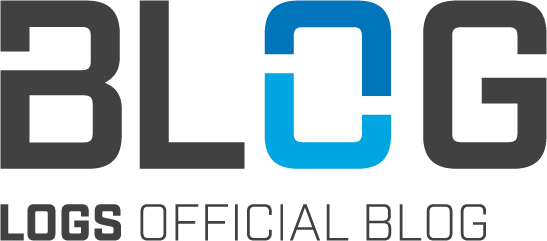|
Leta McLaughlin, a seasoned Business Development executive with a deep-rooted passion for the real estate industry, brings her expertise to LOGS Legal Group LLP as the Vice President of Business Relations. Her strategic acumen and commitment to nurturing long-term client relationships have been instrumental in her successful career spanning over three decades.
With an exceptional ability to cultivate and sustain strategic partnerships, Leta has consistently expanded market presence and driven remarkable revenue growth. Her knack for identifying creative solutions enables her to exceed client needs and expectations. During her extensive tenure in the real estate industry, Leta has established strong relationships with a diverse range of clients, including real estate investors, hedge funds, servicers, banks, private lenders, and mortgage professionals. Her exceptional communication skills, both written and oral, have played a pivotal role in her successful journey as a relationship builder and client manager. Leta possesses a commendable track record of selling and cross-selling multiple lines of business, consistently surpassing revenue expectations. Her vast experience includes selling residential real estate, sourcing loan trades for hedge funds, capturing significant market share for a national law firm, increasing revenue for a loan servicer, and boarding loans to be sold on auction platforms. In addition, she owns a real estate judgment recovery business.
0 Comments
Except certain executive orders, directives, and powers will remain in effect temporarily. (NJ AB 5820)
Assembly Bill 5820, signed into law on June 4, 2021, terminates the public health emergency declared by the Governor to address the Pandemic, yet, leaves effective thirteen (13) Executive Orders that would have expired upon termination of the public health emergency declaration. The thirteen Executive Orders will remain in effect until January 1, 2022. One of the thirteen Executive Orders is Executive Order 106, instituting the Eviction Moratorium that will now expire on January 1, 2022. For now, no evictions may take place in the State of New Jersey for the remainder of 2021. On June 24, 2021, the New Jersey Legislature passed S3691/A5685, which provides financial relief to tenants and provides certain protections from eviction. This bill has been sent to the Governor. The bill provides financial assistance for tenants based upon income level and provides certain protections from eviction for those with the inability to pay rent and who have been or are impacted by the COVID-19 pandemic. This bill also revises Eviction, foreclosure prohibited during certain emergency circumstances, N.J.S.A. 2A:18-59.3, which became law March 2020. Among the newly added provisions to N.J.S.A. 2A:18-59.3, the eviction moratorium, Executive Order 106, prohibiting the removal from a residential property as a result of a foreclosure will now expire November 15, 2021. The Maryland foreclosure process reopened July 1st when DLLR reopened the portal to allow the filing of the NOI. As a reminder, for those servicers that sent the forbearance letters provided for in Governor Hogan’s order 20-10-16-01 and thereafter restated they will effective July 1st, be able to move forward with the mailing and certification of the mailing of the NOI. This is for non-GSE or government related loans that are not subject to moratoriums which have been extended through July 31, 2021.
Those servicers that did not elect to send the pre-foreclosure 180 day forbearance notice will not be able to proceed until the State of Emergency terminates. The State of Emergency in Maryland is currently scheduled to terminate August 15, 2021. The prior emergency orders provide that those lenders who offered forbearance agreements, as outlined below, would be able to proceed when DLLR opened the portal. The portal is now going to open forty-five (45) days prior to the termination of the State of Emergency:
All industry agencies and investors extended pandemic foreclosure and eviction moratoriums through July 31, 2021. Please refer to the below list of industry announcements.
FACT SHEET: Biden-Harris Administration Announces Initiatives to Promote Housing Stability By Supporting Vulnerable Tenants and Preventing Foreclosures CDC Director Extends the Eviction Moratorium for 30 days FHFA Extends COVID-19 Foreclosure and REO Eviction Moratoriums Freddie Mac Bulletin 2021-23: Extension of the COVID-19 Foreclosure Moratorium Extension of Fannie Mae Single-Family Foreclosure Moratorium VA Circular 26-21-10 Relief for Borrowers Affected by COVID-19 FHA Mortgagee Letter 2021-15 Extension of the Foreclosure and Eviction Moratorium in Connection with the Presidentially-Declared COVID-19 National Emergency, Further Expansion of the COVID-19 Forbearance and the COVID-19 Home Equity Conversion Mortgage (HECM) Extensions, and Establishment of the COVID-19 Advance Loan Modification (COVID-19 ALM) USDA Extends Eviction and Foreclosure Moratorium, and Offers Guidance on Mortgage Forbearance Deadline On June 28, 2021, the CFPB issued “Protections for Borrowers Affected by the COVID-19 Emergency Under the Real Estate Settlement Procedures Act” (Final Rule). The Final Rule provides additional protections from foreclosures to the borrowers impacted by COVID-19 and it is effective August 31, 2021. Fannie Mae and Freddie Mac requested that servicers shall not make the first notice or proceeding with foreclosure that would be prohibited by the CFPB Final Rule for borrowers affected by the COVID-19 during the period between July 31 and August 31. The Florida office is providing you with the following case law update for June 2021. These updates are summaries of cases that impact foreclosure issue cases. We have provided the general holding of the case. If any case is of interest to you, please let us know. We are happy to provide a detailed analysis of the facts and holding of the case and how they might apply to your specific situation.
CFPB did not finalize the initially proposed pre-foreclosure requirements; instead, the final rule provides temporary and a more tailored procedural protection to minimize avoidable foreclosures. Final § 1024.41(f)(3) requires a servicer to ensure that one of three temporary procedural safeguards have been met before making the first notice or filing because of delinquency:
The CFPB proposes to refer to these protections as Temporary Special COVID-19 Loss Mitigation Procedural Safeguards. These safeguards are applicable only if
This temporary provision will expire on January 1, 2022, meaning that the procedural safeguards in § 1024.41(f)(3) would not be applicable if a servicers makes the of the first notice or filing required by applicable law for any judicial or non-judicial foreclosure process on or after January 1, 2022. The final rule is effective on August 31, 2021. FLORIDA CASE LAW UPDATES
WELLS FARGO BANK, N.A. V. TAN, 4D20-613 (Fla. 4th DCA May 5, 2021) The Fourth District agreed with the trial court that the foreclosure judgment in favor of a junior mortgagee was void as to a senior mortgagee whose mortgage had been recorded before that of the junior mortgagee. In addition, the trial court erred in finding that the senior mortgagee’s motion to vacate that foreclosure judgment was not timely filed, as a party may move to vacate a void judgment at any time. Nevertheless, the Fourth District affirmed the order denying the senior mortgagee’s motion to vacate judgment because it also agreed with the trial court that section 702.036, Florida Statutes, barred the court from vacating the judgment where the vacation of judgment would adversely impact the quality and character of title to the property since that property had been purchased by bona fide third parties after the foreclosure sale. Document Link FLORIDA CASE LAW UPDATES
PALMER V. HMG VENTURE PARTNER, LLC, 5D20-956 (Fla. 5th DCA May 7, 2021) In this Per Curiam affirmed case, Judge Cohen, in his special concurring opinion, explained the appellant, Palmer, argued the trial court abused its discretion by failing to grant him an evidentiary hearing on his timely objection to the bid amount under section 45.031(8), Florida Statutes. The judge, citing to precedent, noted that as a general proposition, mere inadequacy of price standing alone is not a basis to set aside a judicial sale. Because the only allegation in Palmer’s affidavit was the mistake in failing to attend the foreclosure sale, it was wholly inadequate to necessitate an evidentiary hearing on his objection. Document Link Fourth District Reversed Trial Court's Order Denying Homeowner's Motion for Attorney's Fees6/2/2021 FLORIDA CASE LAW UPDATES
WATERS V. WILMINGTON TRUST, N.A., 4D20-397, (Fla. 4th DCA May 26, 2021). In a per curiam opinion, the Fourth District reversed the trial court’s order denying the homeowner’s motion for attorney’s fees under section 57.105(7), Florida Statutes (providing reciprocal attorney’s fees to the other party to a contract who prevails in a suit regarding that contract which provides fees for its enforcement). The Court explained the Lender confessed error (a way of consenting with the homeowner on appeal that the order denying fees should be reversed) based on the Florida Supreme Court’s recent holding in Page v. Deutsche Bank Tr. Co. Ams., 308 So. 3d 953 (Fla. 2020). However, the Fourth District characterized the Page holding as one which stands for the proposition that a mortgagor who prevails in a foreclosure action based on the plaintiff’s lack of standing at the time the lender filed the foreclosure action was entitled to prevailing party attorney’s fees. Moreover, the Court described the Lender’s confession of error as acknowledging the mortgage provided for “prevailing party attorney’s fees,” and that based on Page, the homeowner was entitled to fees for successfully defending the case in the trial court. Nevertheless, the standard residential mortgage form is bereft of any provisions that provide prevailing party attorney’s fees. This decision adds to the confusing jurisprudence regarding a borrower’s entitlement to attorney’s fees under section 57.105(7) when that borrower prevails by either showing the plaintiff did not prove standing or successfully proving a lack of standing defense. Document Link FLORIDA CASE LAW UPDATES
WILMINGTON SAV. FUND SOC'Y FSB V. MORRONI, 2D20-3085 (Fla. 2nd DCA May 28, 2021). The Second District held that the trial court erred in denying the plaintiff’s motion for the return of the loan documents in the court file following its unsuccessful foreclosure action based on the trial court’s mistaken conclusion that the appellate court, in reversing judgment for the plaintiff, had found that the documents were not the originals. The appellate court only ruled that the plaintiff failed to carry its burden of proof that the note and the allonge it tendered were originals, not that the note and allonge were not actually originals. Moreover, there was no judgment cancelling the note. Absent such a judgment, the plaintiff was entitled to the return of its property. Document Link |
Archives
September 2023
Categories
All
|
|
Website by SQFT.Management
|
© COPYRIGHT 2024. ALL RIGHTS RESERVED.
|

 RSS Feed
RSS Feed
